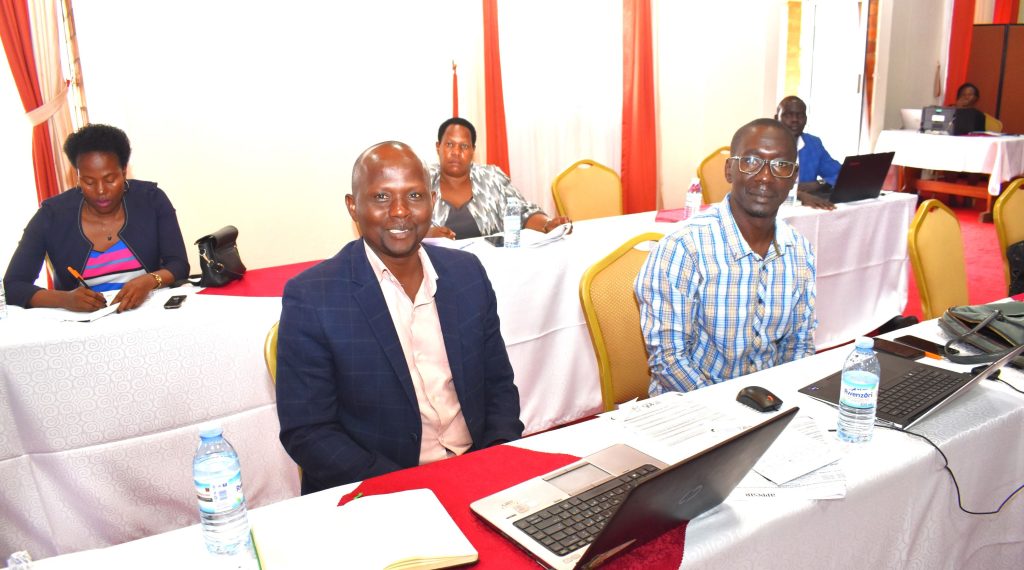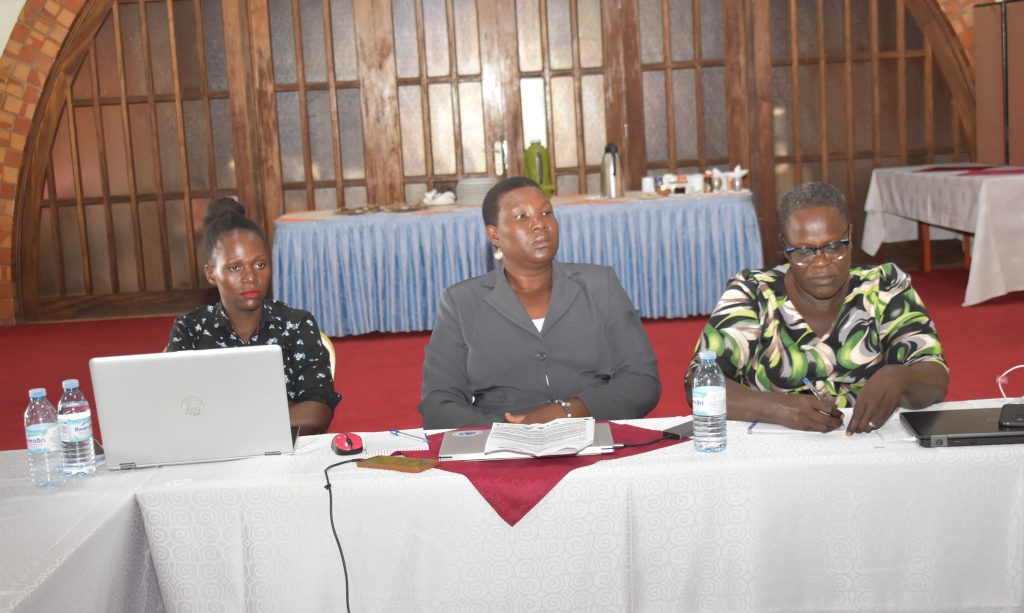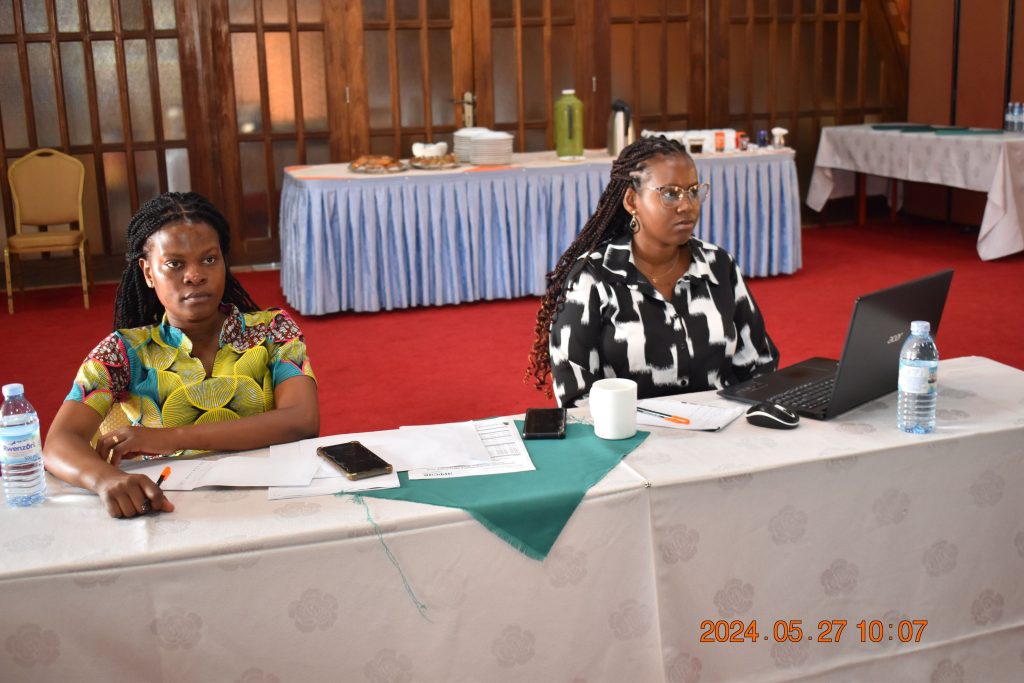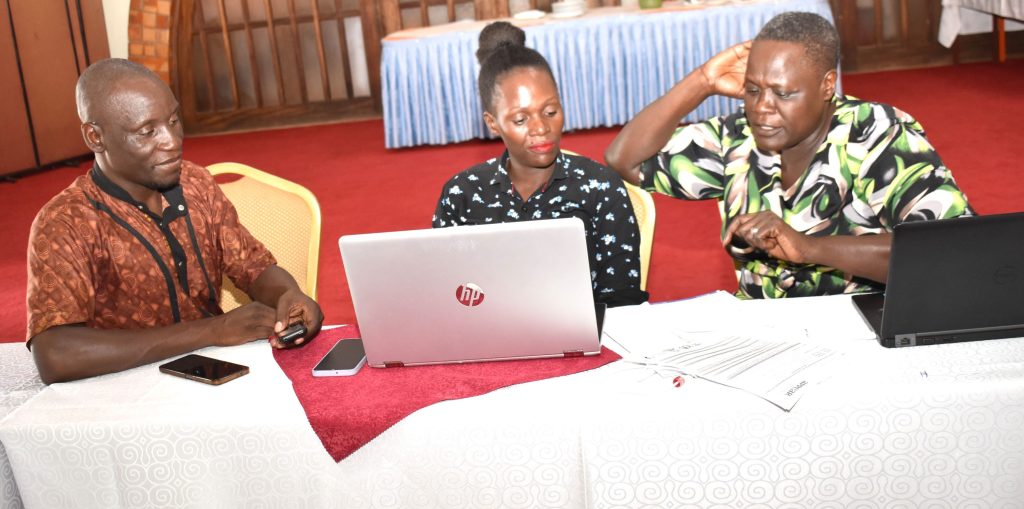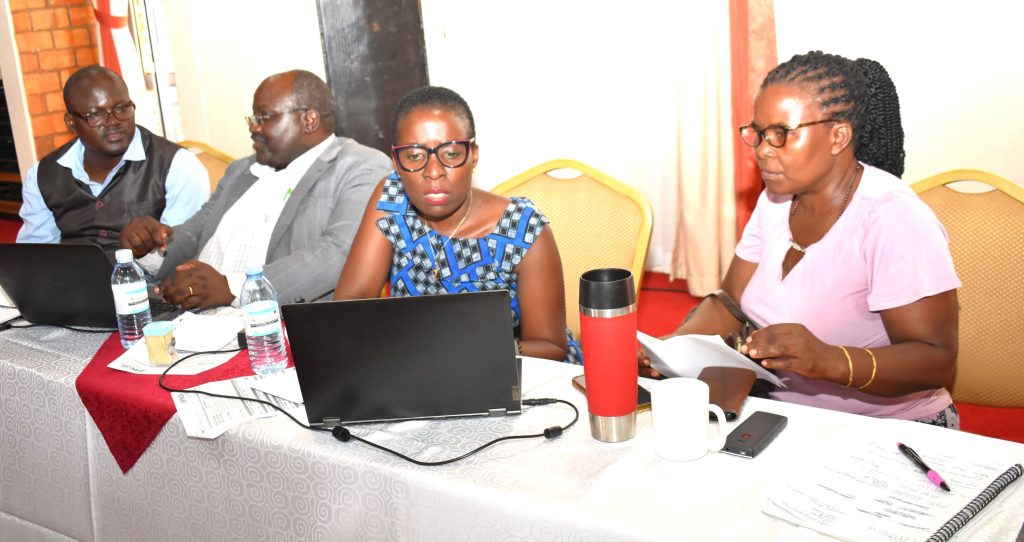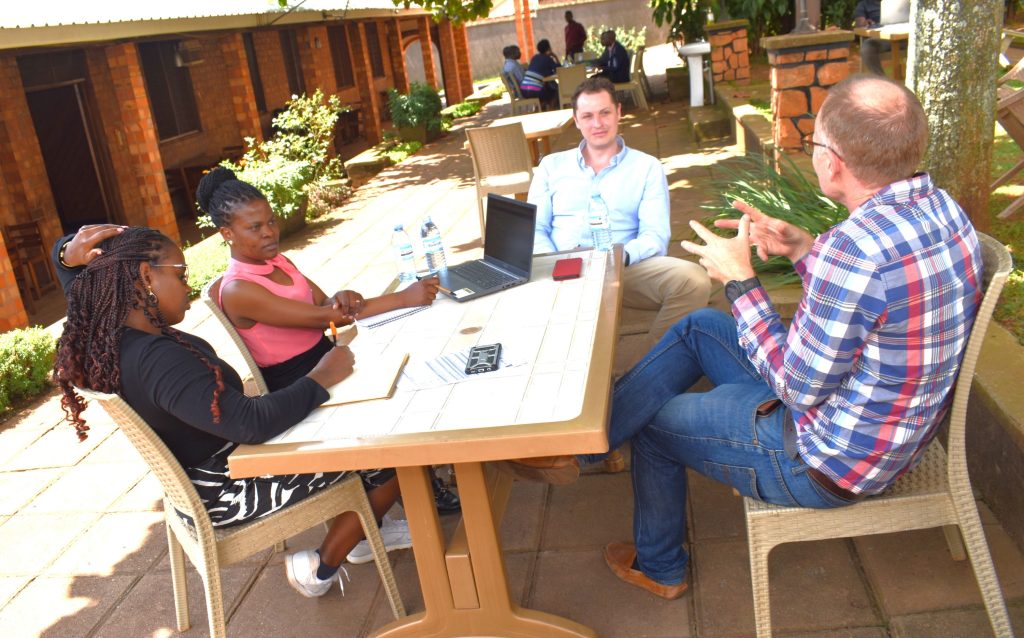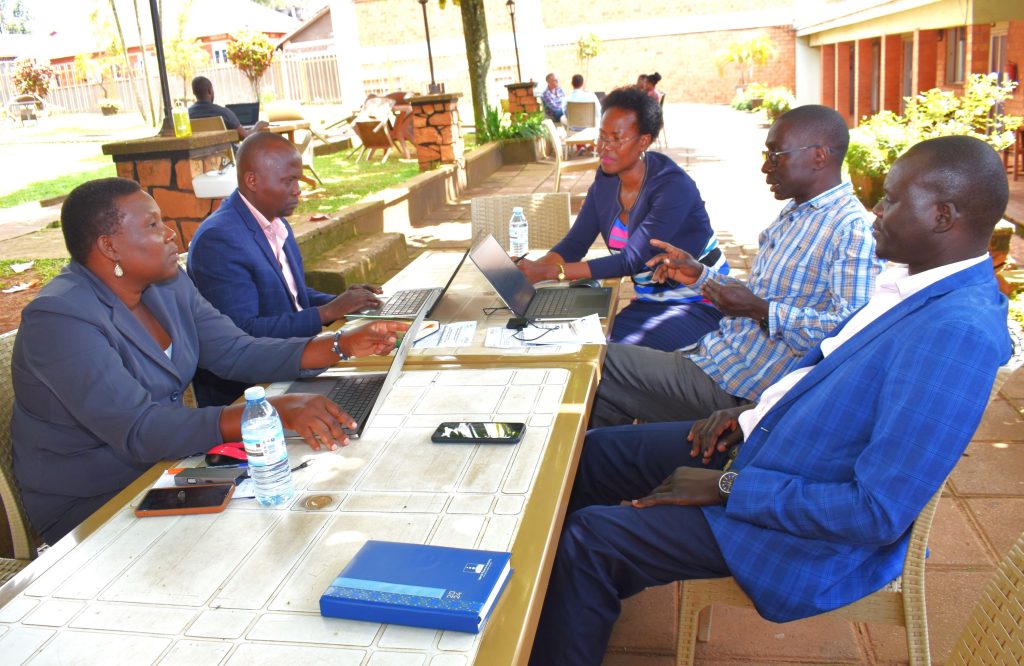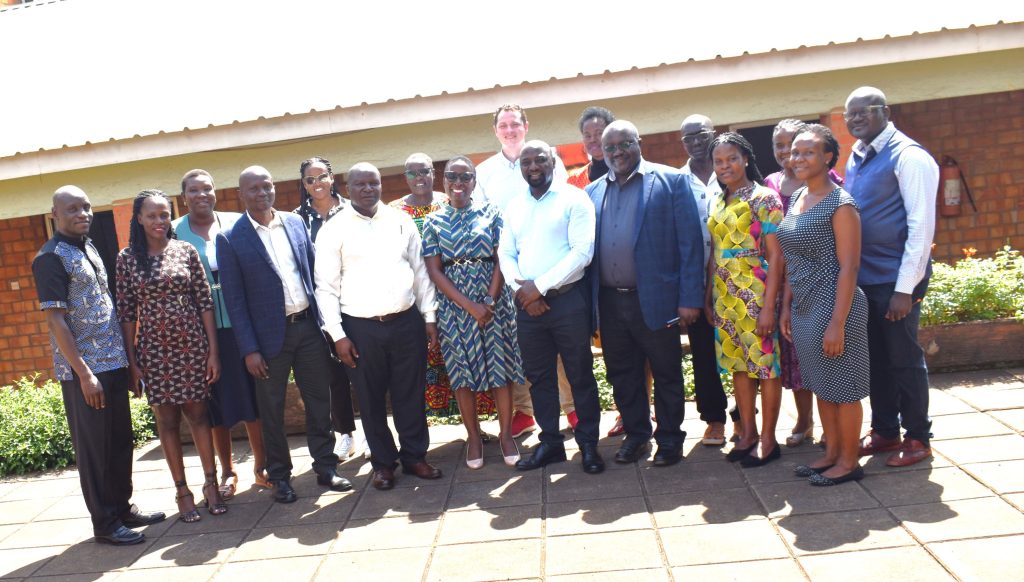***Funded by the Austrian Development Cooperation through APPEAR, the project aims to develop sustainable technologies for remediation and rehabilitation of mercury contaminated soils and effluents in Mercury-dependent Artisanal and Small-scale Gold Mining (ASGM) areas in Uganda. The project team held their kick-off meeting on 27th-29th May 2024 in Kampala.
Overview
Mercury-dependent Artisanal and Small-scale Gold Mining (ASGM) provides an important source of employment to several communities in Uganda (Esdaille and Chalker, 2018). Reports indicate that between 400,000 and 600,000 people in Uganda are directly employed in ASGM and about 2 million people indirectly dependent on it. At least 45% of the workforce in ASGM are women and another 20% are children. However, the methods used in ASGM are not safe. In ASGM, gold is extracted from crushed rocks or soils through amalgamation with mercury. In the process, mercury is released into the environment leading to contamination of arable land downstream of ASGM areas. Contamination of the soils and water has severe consequences on agricultural activities in ASGM communities, yet agriculture significantly contributes to Uganda’s GDP with about 68% of the country’s working population employed in the sector. The effluents that drain into streams or swamps and eventually reach lakes like Victoria may get concentrated in fish which is a major source of protein for local communities. Mercury poses several health challenges to humans. Depending on the type and amount, exposure to mercury can damage the nervous system, kidneys, liver and immune system.
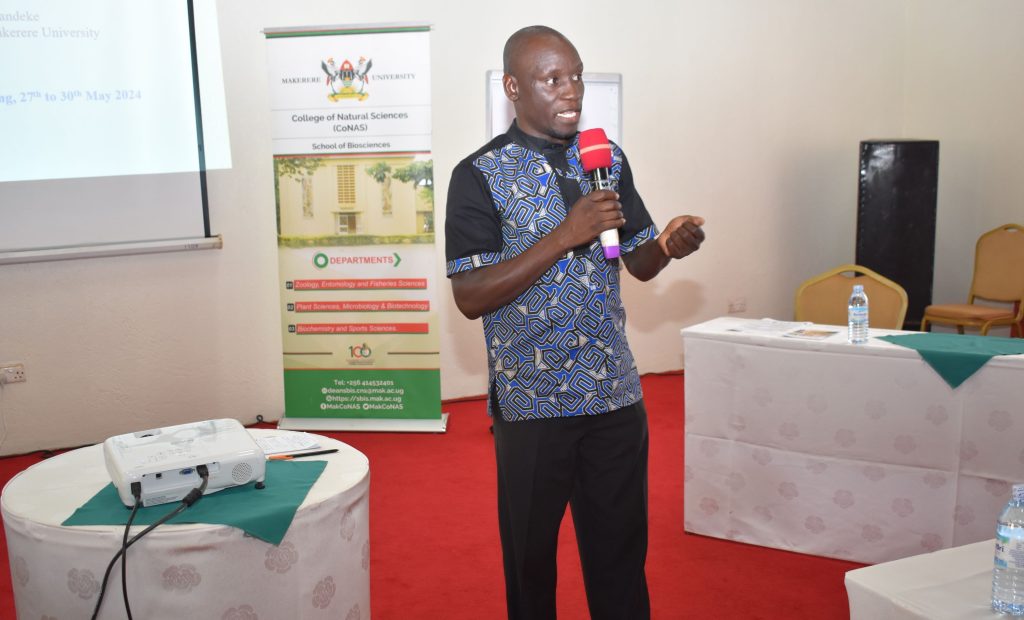
BioGOLD Project Goal
Biosorption for Sustainable Small-Scale Gold Mining in Uganda (BioGOLD), a new project funded by the Austrian Development Cooperation through APPEAR aims to develop sustainable technologies for remediation and rehabilitation of mercury contaminated soils and effluents in Mercury-dependent Artisanal and Small-scale Gold Mining (ASGM) areas in Uganda.
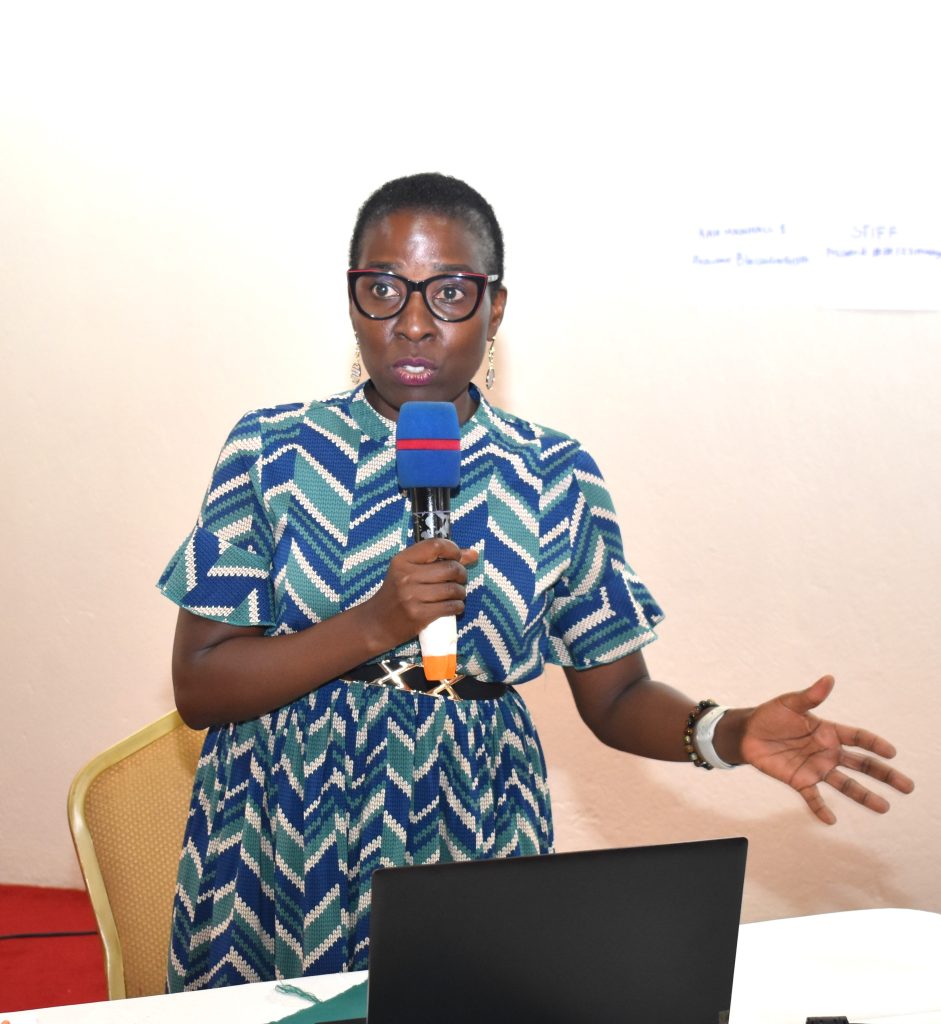
Project partners: Makerere University, Kyambogo University, Gulu University, University of Pretoria (South Africa), and the University for Continuing Education Krems – Austria. The Project PI is Dr Mary Kaggwa from Kyambogo University.
The Project Coordinators at the partnering institutions are: Dr Peter Akoll (Makerere University), Dr Dennis Nono (Gulu University), Prof. Hendrik Brink (University of Pretoria), Dr Nils Haneklaus (University for Continuing Education Krems – Austria). Other members on the project are: Dr Emmanuel Tebandeke, Head Department of Chemistry, Makerere University, and Dr Betty Naziriwo from the same Department; Dr Beatrice Arwenyo, Dr Oryema Christine, Dr Achaye Innocent, Dr Martine Nyeko, and Ms. Abalo Solome from Gulu University; and Ms. Ruth Kasavo and Ms. Hilda Kyamulimbo, Doctoral students at the University of Pretoria.
Project sites: Kasanda in Mubende District (Central Uganda), Rubirizi (Western Uganda), and Namayingo District (Eastern Uganda). Project implementation period: March 2024-February 2027.
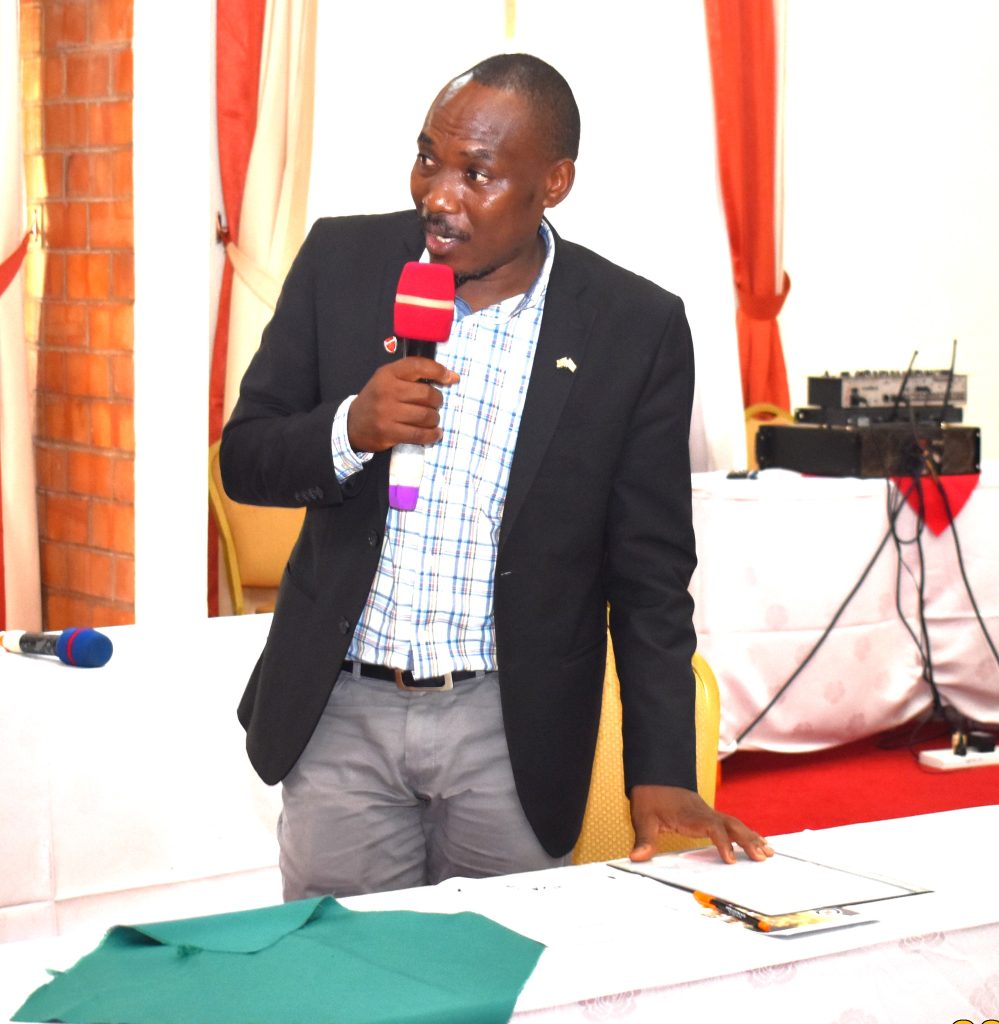
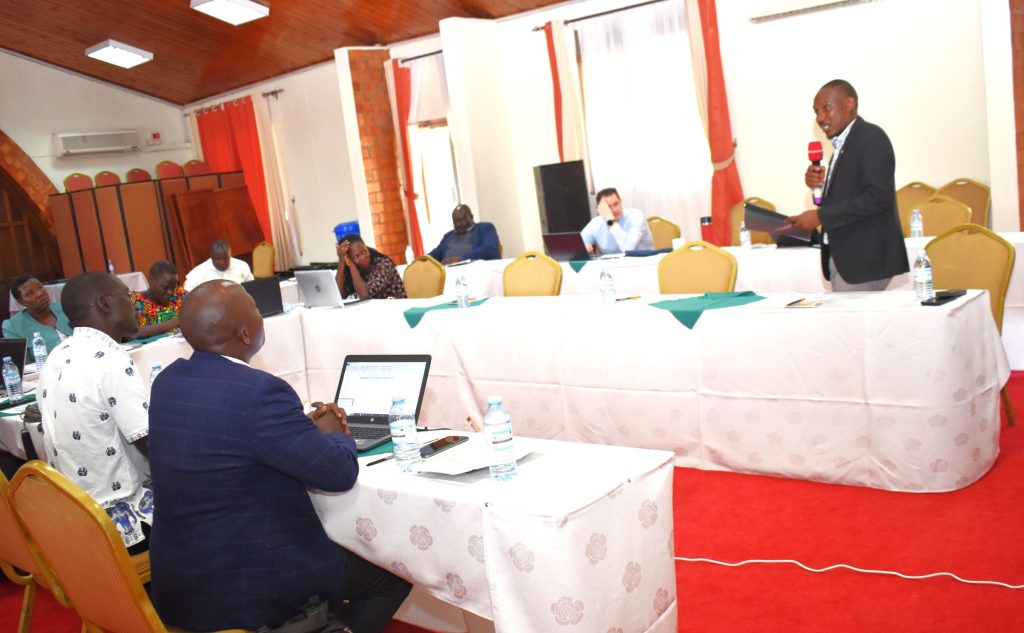
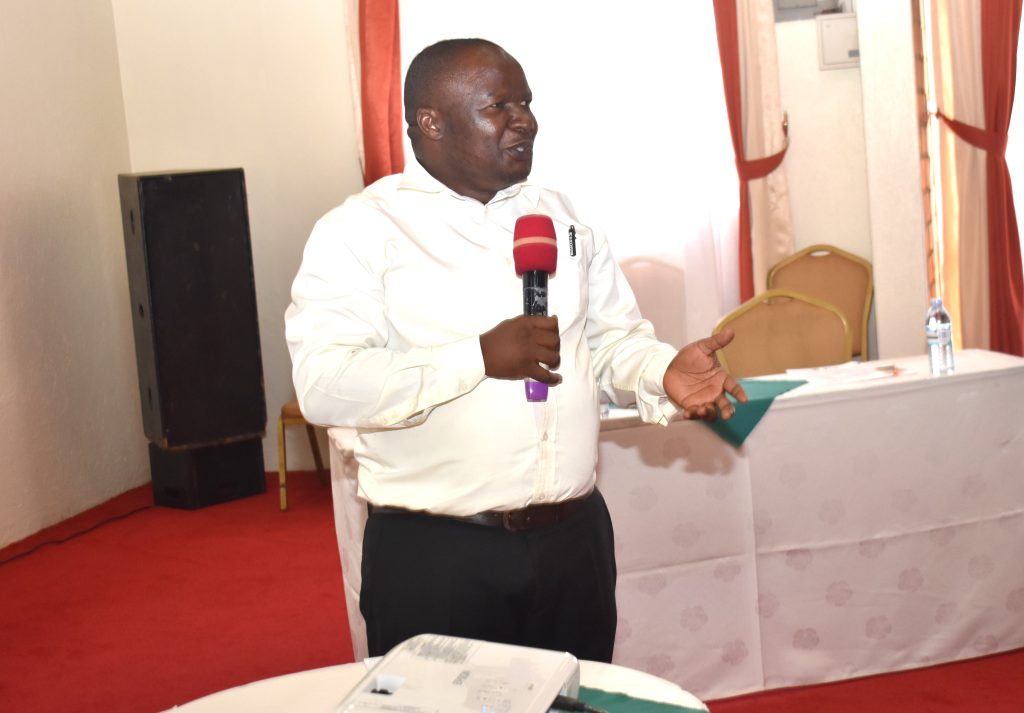
Project inception meeting
The project team held a three-day workshop (27th-29th May 2024) at Kolping Hotel in Kampala to develop the implementation plan, followed by an excursion at one of the project sites on 30th May 2024. Officially opened by the Principal, College of Natural Sciences (CoNAS), Makerere University, Prof. Winston Tumps Ireeta on 27th May 2024, the project team deliberated on a number of issues, harmonizing approaches for achieving the project objectives. The team specifically discussed roles for each institution, project sites, timelines, communication and dissemination plans, monitoring and evaluation, and the budgets. They also deliberated on the selection, characterisation, and optimization of biosorbents; capacity building processes; strategies for achieving diversity and inclusion; and characteristics of heavy metals in tailing discharge and soils. Working in groups, the team developed implementation plans for each of the five work packages designed for the project.
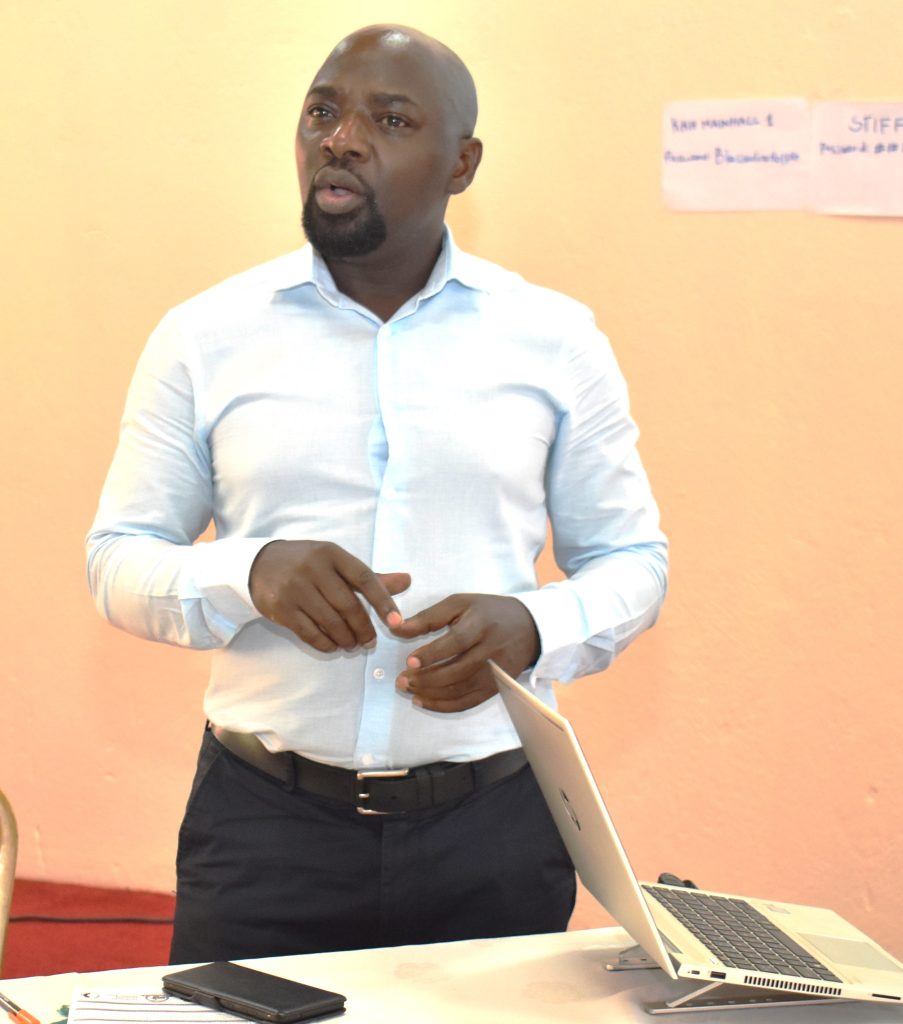
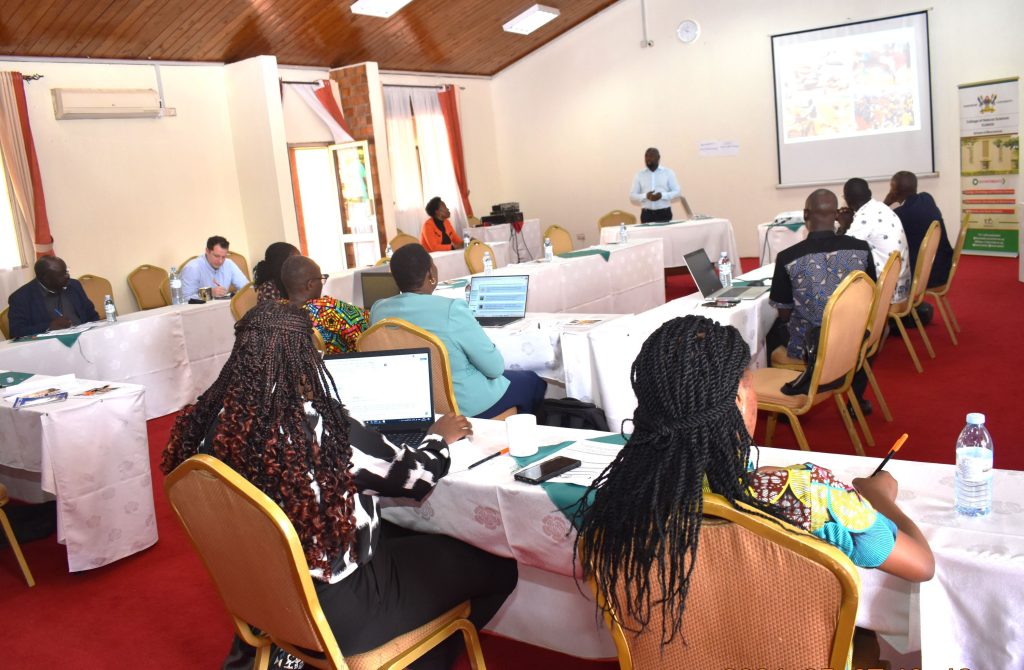

Work packages
- WP 1: Building partnership and capacity – This will involve mobilizing, building capacity and developing a culture of dialogue and cooperation between the participant institutions and stakeholders. The team working on this package will be responsible for drafting curriculum and recruiting suitable candidates for the MSc programme.
- WP 2: Characterization of heavy metals at the ASGM – to characterize heavy metals in tailing discharge (sediment) and soils at small-scale gold mining. Under this package, the team will identify suitable points for sample collection, conduct a reconnaissance in selected study sites, and undertake sample collection, field measurements of selected parameters, and laboratory analyses of selected parameters.
- WP 3: Development of Treatment Technology – technologies for soil and wastewater remediation or treatment in ASGM.
- WP 4: Gender, Diversity & Inclusion – to integrate the dimensions of gender, diversity & inclusion in the project.
- WP 5: Dissemination and visibility – to disseminate the project results to the scientific community and the interested public. This is aimed at enhancing visibility of the project activities through different platforms.
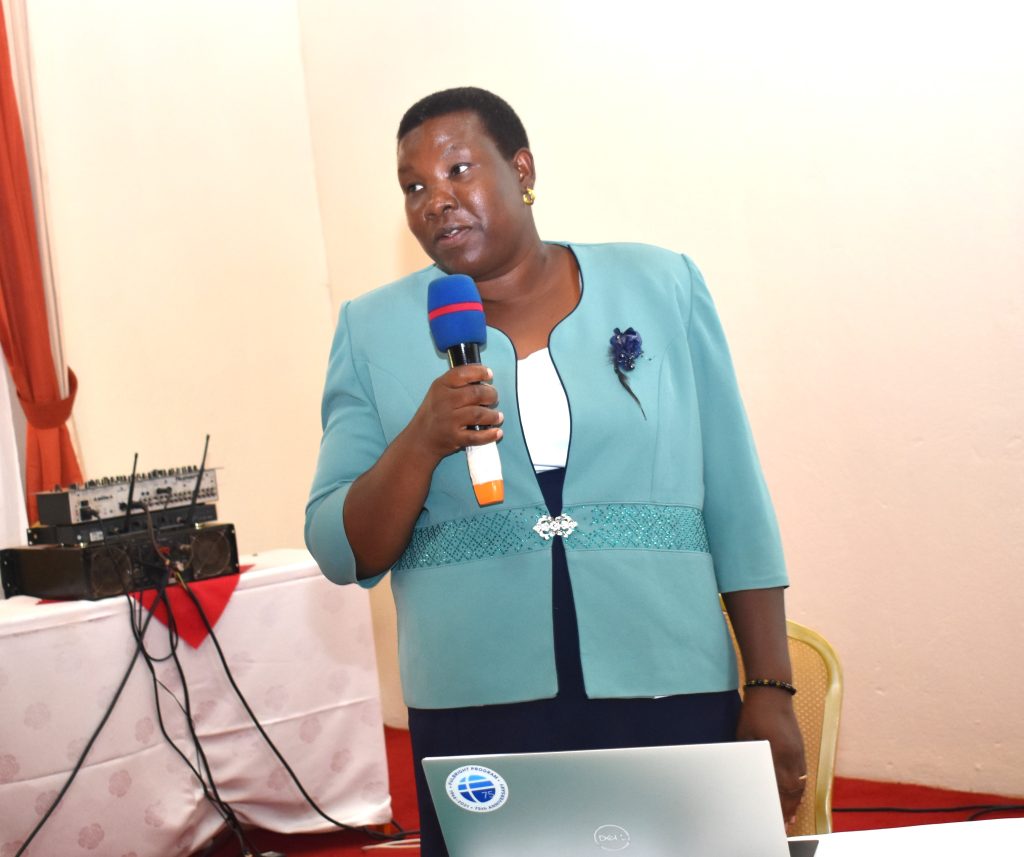
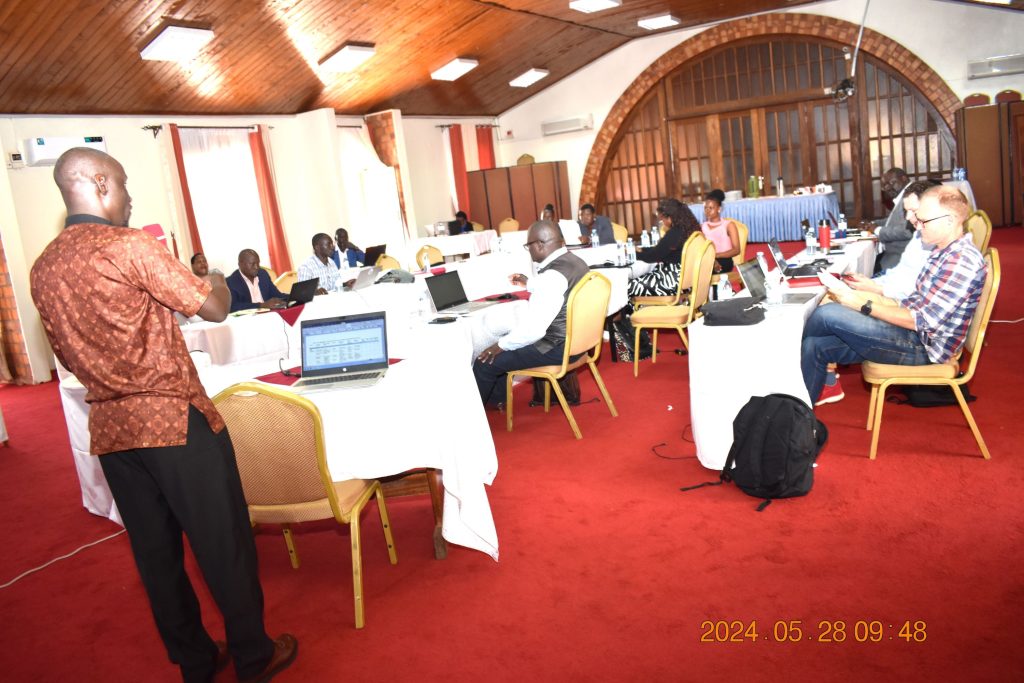
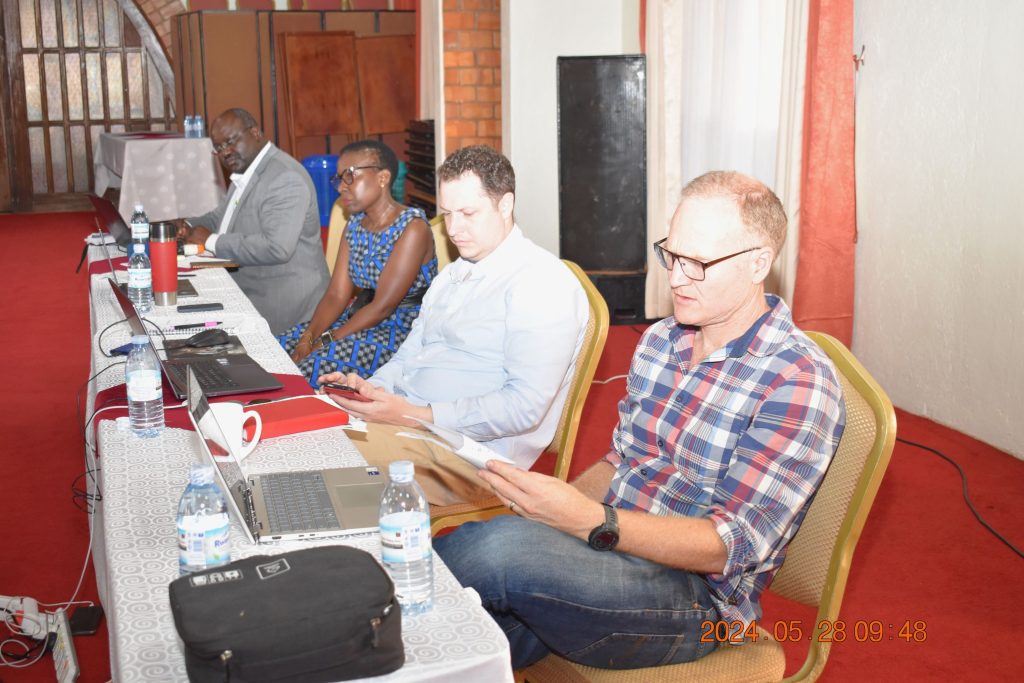
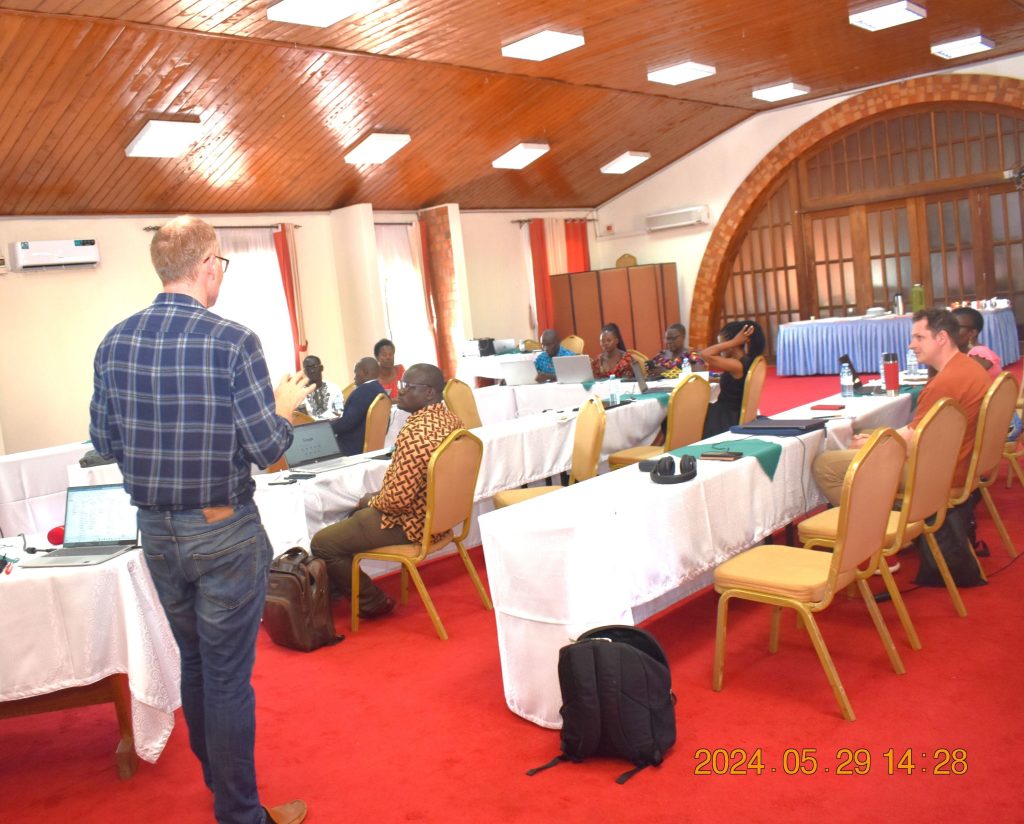
Approach to achieving the project goal
i) The project team intends to use a combination of principles of biosorption and chemical remediation to treat contaminated tailings, rehabilitate contaminated soils making them fit for agricultural production and contribute to food security.
ii) The team plans to design biochar composites from locally available biomass to enhance Hg removal from tailings and limit its bioavailability in soils thereby protecting vulnerable ecosystems such as Lake Victoria and wetlands.
iii) Further, the project will build capacity in environmental remediation and protection through the incorporation of acquired knowledge in MSc curriculum development in Kyambogo University, training young researchers and communities in ASGM areas.
iv) The biosorbent composites will be first tested in Namayingo (Eastern Uganda), Kassanda (Central Uganda), and Rubirizi (Western Uganda) areas. After the first phase, project activities will be rolled out to other ASGM areas in Uganda.
v) The project team will sensitize ASGM communities on the associated challenges and how they can be mitigated to enable them to operate in a safe environment.
